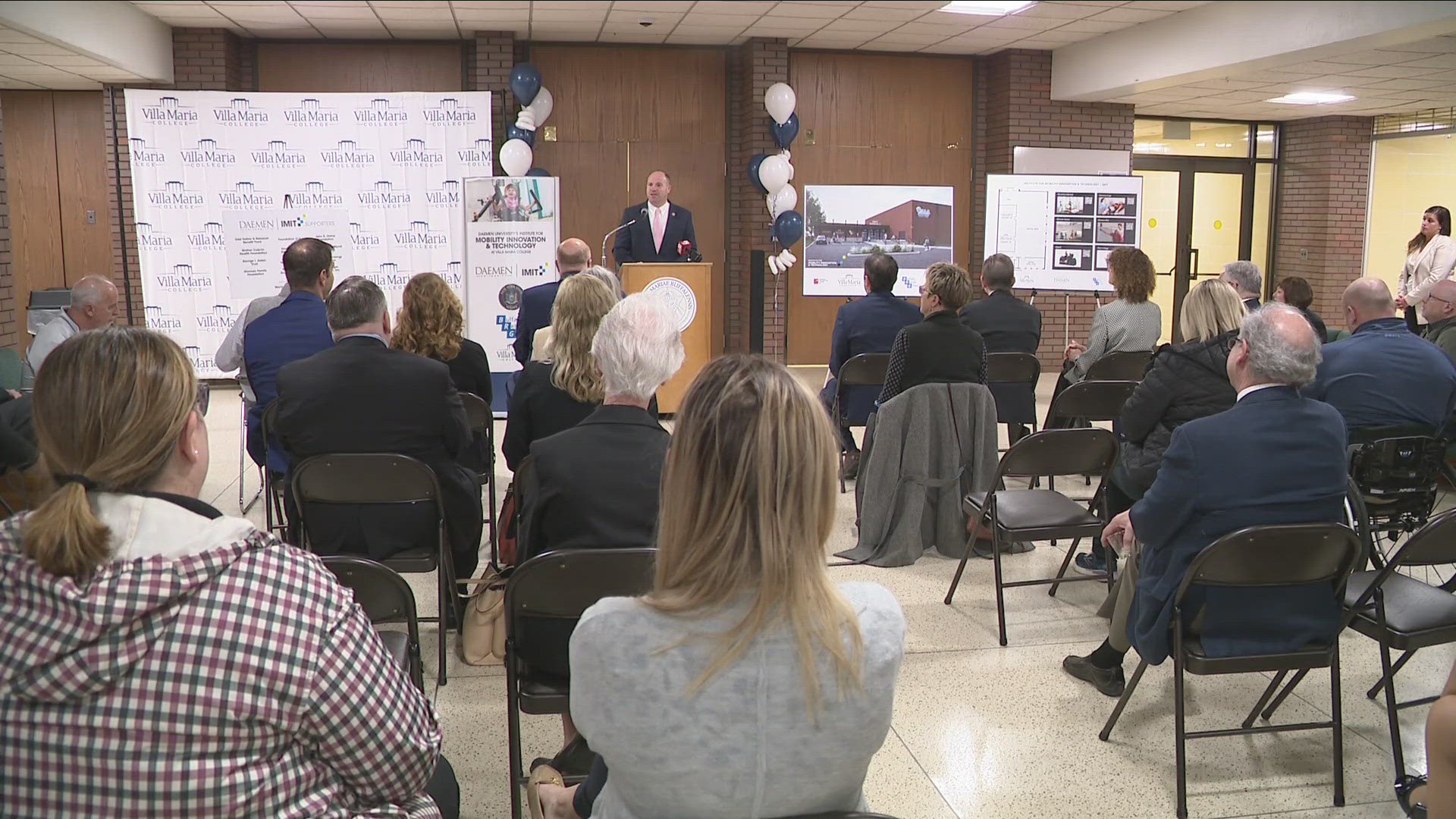ALBANY -- Would New Yorkers choose to make a charitable contribution to the state in order to get the tax deduction?
Or would employers take on an expanded payroll tax so employees could skirt a new federal law that limits state and local income-tax deductions to $10,000 a year? Employers could get a credit to make up the difference.
Or could there be some combination of a new "Employer Compensation Expense Tax" coupled with an income-tax credit on wages for employees?
Those are some of the ideas New York is considering as weighs how to respond to the federal tax reforms in December that caps income-tax deductions for state and local taxes.
The state Department of Taxation and Finance released a report Wednesday on the possible plans after Gov. Andrew Cuomo on Tuesday detailed his budget for the upcoming fiscal year.
Cuomo, a Democrat, stressed that New York needs to overhaul its own tax laws, saying the Republican-led federal government "launched an economic missile" at New York.
"You know what my recommendation is? Get out of the way before it lands," Cuomo said Wednesday.
"They want to shoot at our tax code the way it was? We change the tax code, and we change it in a way that thwarts their attack."
But critics said Cuomo is making more trouble than it's worth, saying most New Yorkers will get a tax break under the plan; mainly the wealthy would take a hit on the limited tax deductibility. Any plan would need approval of the state Legislature as part of the state budget for the fiscal year that starts April 1.
The federal tax law actually could help the state's bottomline, analysts said.
The tax department's own report said New York would ultimately "reap a $325 million windfall revenue gain" because of the various tax cuts and higher standard deduction in the federal law, according to the Empire Center, a fiscally conservative think tank in Albany.
The state Business Council said, "We have major concerns with a new payroll tax and with increasing business taxes to offset reductions in federal taxes."
Here are four ways the tax law could be changed:
Charitable contributions
Because New York already sends $48 billion more to Washington in tax revenue than it gets back, Cuomo has wanted to limit the added damage from the tax law.
The law, the tax department report said, will cost New York another $14 billion because of the $10,000 cap on state and local income-tax deductions -- which includes property taxes.
Also, because there's a corporate tax rate cut, New York could also lose out, the report said.
"Given the far-reaching nature of the law, New York state will need to undertake extensive analysis as it considers how best to respond to its consequential reforms," the tax department report said.
One option would be for a new charitable contribution program.
The tax department report said New York could establish "one or more state-operated charitable funds to receive taxpayers’ contributions to support the delivery of programs and services across the state."
If taxpayers contribute to the new fund, they would get a tax credit that would offset some percentage of the contribution.
A similar fund could be set up for local governments, the report suggested.
One payroll tax option
The report laid out a possible "Employer Compensation Expense Tax" as an end around to the federal law.
By shifting from an income-tax system to a payroll-tax system, it would change how salaries are calculated for tax purposes.
While the new tax law limits the deductibility for individuals, employer taxes on payroll will remain deductible.
So "relying more on employer-side payroll taxes and less on personal income taxes could, therefore, allow states to mitigate the negative impacts of the federal law," the report said.
Last fiscal year, for example, the state’s personal income tax generated $47.6 billion in revenue.
One option, therefore, would be to create a new employer tax system so employers could deduct their payroll taxes "while keeping state revenues constant."
Another payroll tax idea
Among the ideas, employers would calculate the new payroll tax under a new system that would "reflect net wages, exemption allowances and new employer compensation tax rates," the report said.
Employees would still file income taxes, but they would get an income tax credit equal to what was deducted from their pay to cover the payroll tax.
Another option would be to scrap the income-tax system altogether and offer a credit to employers. "Under this option, wage income would no longer be subject to a personal income tax, which could simplify tax filing for many employees," the report said.
A tax surcharge
Some New Yorkers receive what is called "supplemental wages" -- mainly bonuses and commissions that are taxed differently.
Under a scenario discussed in the tax department report, regular wages would continue to be subject to state income taxes.
But supplemental wages would not be subject to state income taxes, and employers could voluntarily pay a flat rate surcharge on those wages.
About 12 percent of all wages in New York fall into this category.
Similarly, another plan would also be an opt-in option for small-business owners to pay the tax and get income-tax credits on their own tax filings.
Cuomo, who is seeking re-election in November and is a potential 2020 presidential candidate, reiterated Wednesday that the ideas in the report are all under review.
"With this blueprint as a foundation, we will work with experts, the Legislature, employers, taxpayers and other stakeholders to develop and implement changes to the tax code that protect all New Yorkers," he said in a statement.
"I will not stand by as partisan politics in Washington seeks to threaten the people of this state."


